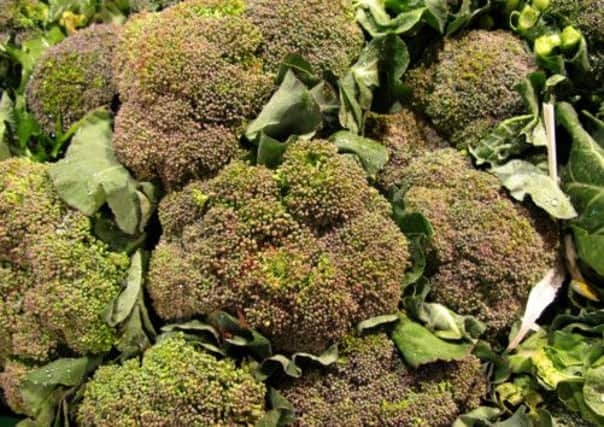Broccoli could prevent arthritis, researchers say


Researchers at the University of East Anglia have found that a substance found in broccoli called sulforaphane can prevent or slow down the destruction of cartilage in joints caused by osteoarthritis, the most common type of the condition.
The work, conducted on laboratory animals, is the first to suggest a direct link between diet and the disease - bringing hope that it could be a “breakthrough” if the results can be replicated in humans.
Advertisement
Hide AdAdvertisement
Hide AdIan Clark, professor of musculoskeletal biology at the Norwich university, said: “The results from this study are very promising.
“We have shown that this works in....laboratory models we have tried [it on] ....in mice. We now want to show this works in humans. It would be very powerful if we could.”
Explaining the potential benefits for those who have yet to develop osteoarthritis, he added: “As well as treating those who already have the condition, you need to be able to tell healthy people how to protect their joints into the future.”
Arthritis Research UK, which co-funded the study, said the findings raised the prospect that millions who already have or are likely to develop osteoarthritis could save themselves from the debilitating pain which it causes by changing their eating habits.
Alan Silman, medical director at Arthritis Research UK, said: “This is an interesting study with promising results as it suggests that a
common vegetable, broccoli, might have health benefits for people with osteoarthritis and even possibly protect people from developing the
disease in the first place.
“Until now research has failed to show that food or diet can play any part in reducing the progression of osteoarthritis, so if these
findings can be replicated in humans, it would be quite a breakthrough.
Advertisement
Hide AdAdvertisement
Hide Ad“We know that exercise and keeping to a healthy weight can improve people’s symptoms and reduce the chances of the disease progressing,
but this adds another layer in our understanding of how diet could play its part.”
More than 8.5 million of the estimated 10 million people in the UK with arthritis have osteoarthritis, including around 500,000 in Scotland.
The degenerative disease is characterised by inflammation of the joints, particularly in the hands, feet, spine, hips and knees.
It damages the cartilage, the soft tissue protecting the surface of the bone, which becomes pitted, rough and brittle.
Joints appear knobbly as bony outgrowths form on them. The cartilage can also break away from the bone, leaving exposed points which can rub against each other, straining ligaments and causing a lot of pain and changes the shape of the joint.
The cause of osteoarthritis remains unknown and while it is more common in older people and in women, it can affect anyone of any age and cannot be cured.
Aging and obesity are the most common contributors to the condition and it is predicted the number of people seeking treatment will rise
sharply by 2035.
Advertisement
Hide AdAdvertisement
Hide AdThe condition can also be triggered by injury to a joint, an effect which can take place years after the original trauma.
Although the Norwich study is the first major research into the effects of sulforaphane on joint health, previous work has suggested that the compound, and therefore broccoli, can also help protect people against breast, bladder and prostate cancer.
Other vegetables which contain sulforaphane include brussel sprouts and cabbage.
Broccoli is among a host of so-called superfoods which are thought to help protect people from a range of ailments.
It also contains lutein, an essential nutrient for eye health, and folate, which helps to reduce the risk of central nervous system defects.
SEE ALSO